May 16, 2025 | 10:23 GMT +7
May 16, 2025 | 10:23 GMT +7
Hotline: 0913.378.918
May 16, 2025 | 10:23 GMT +7
Hotline: 0913.378.918
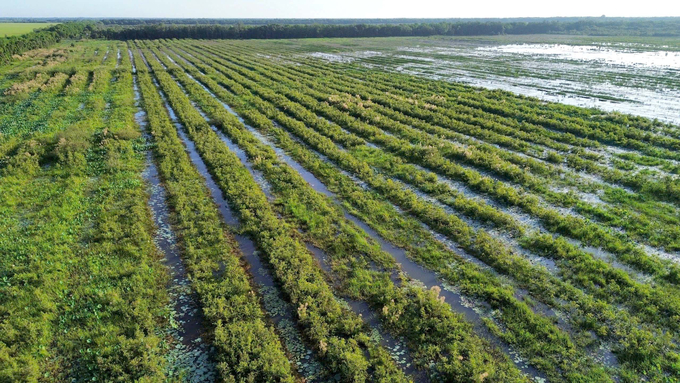
Images of the forest's development after 2 years of restoration. Photo: Ho Chi Minh City Law Newspaper.
On November 22, 2024, the International Union for Conservation of Nature (IUCN), in partnership with the Lang Sen Wetland Reserve, organized a closing ceremony for the project "Planting and restoring 17 hectares of special-use melaleuca forest with 340.000 melaleuca trees". The ceremony served as an opportunity to assess the environmental impact of the project after two years of restoration work. It also provided a platform to share valuable experiences and lessons learned during the project’s implementation, as well as to discuss the potential for developing carbon credits through forest planting initiatives.

Images of the forest's development after 2 years of restoration. Photo: Ho Chi Minh City Law Newspaper.
The event was attended by representatives from the Long An Provincial Government, Tan Hung District, the three buffer zone communes of the Lang Sen Wetland Reserve, the Long An Forest Protection Department, the leadership of the Lang Sen Wetland Reserve, representatives from PAN Group, C.P. Vietnam Livestock Joint Stock Company, IUCN, forestry and carbon credit experts, as well as media agencies.
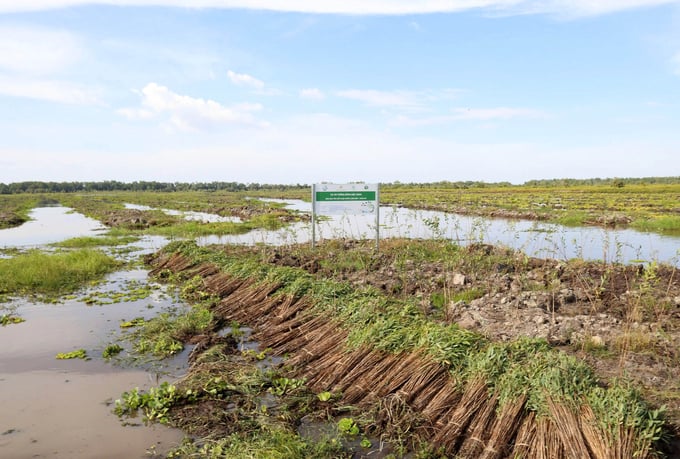
The 17-hectare cajuput forest area at the time it required restoration, photographed on December 22, 2022.
The project titled "Planting and restoring 17 hectares of special-use melaleuca forest with 340.000 melaleuca trees" in Tan Hung District, Long An Province, was implemented from 2021 to 2024. It was carried out through a collaboration between the International Union for Conservation of Nature (IUCN) and the Lang Sen Wetland Reserve, with financial support from C.P. Vietnam in partnership with PAN Group.
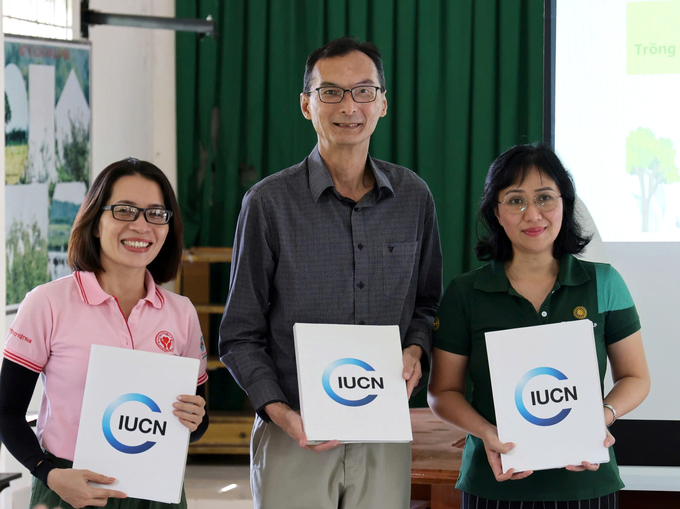
The signing of a three-party cooperation agreement to implement the project.
The Lang Sen Wetland Reserve is Vietnam’s 7th Ramsar site and the 2.227th globally. The project is focused on restoring the natural habitats of waterfowl, as well as aquatic plants and animals. Additionally, it seeks to increase public awareness about the critical importance of nature conservation, particularly in protecting wetland ecosystems.
This collaborative effort is also part of the broader “C.P. Vietnam - A Journey for a Greener Vietnam 2021 - 2025” initiative. As part of this program, C.P. Vietnam aims to plant 1.5 million trees across the country. This includes the planting of 500.000 trees within the company's own operations, including its facilities, factories and farms, as well as a goal of planting 1 million trees through partnerships with local governments.
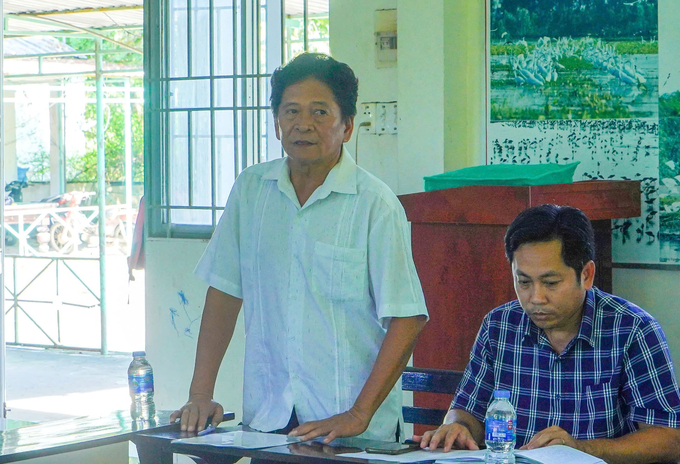
Mr. Truong Thanh Son, Director of the Lang Sen Wetland Reserve, gave a speech at the closing ceremony.
At the closing ceremony, representatives from the Lang Sen Wetland Reserve emphasized that the restoration of 17 hectares of cajuput forest would play a vital role in preserving the unique biodiversity and natural landscape of the Dong Thap Muoi region. This initiative is not only crucial for safeguarding local wildlife but also for reducing the adverse effects of climate change and natural disasters in the area. Once the forest is fully restored, it will provide an important habitat for a variety of aquatic species, reptiles and rare waterfowl. The representatives from the Lang Sen Wetland Reserve took the opportunity to recognize and thank C.P. Vietnam and PAN Group for their valuable support, especially in strengthening the reserve's efforts to protect the environment and restore the ecosystem.
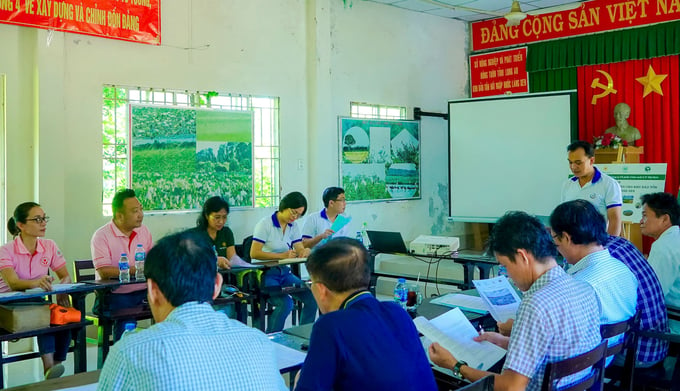
Discussions and sharing at the closing ceremony.
The Lang Sen Wetland Reserve is one of the last remaining natural inland wetland areas in the Mekong Delta, featuring a rich and diverse ecosystem that includes swamps, grasslands and cajuput forests. The restoration of the cajuput forest in this area is not only crucial for the recovery of the wetland ecosystem, but it also contributes to Vietnam's goal of achieving net-zero carbon emissions by 2050. This restoration project serves as a key foundation for the development of carbon credit programs, creating opportunities for businesses such as C.P. Vietnam and PAN Group to participate in carbon offsetting initiatives.
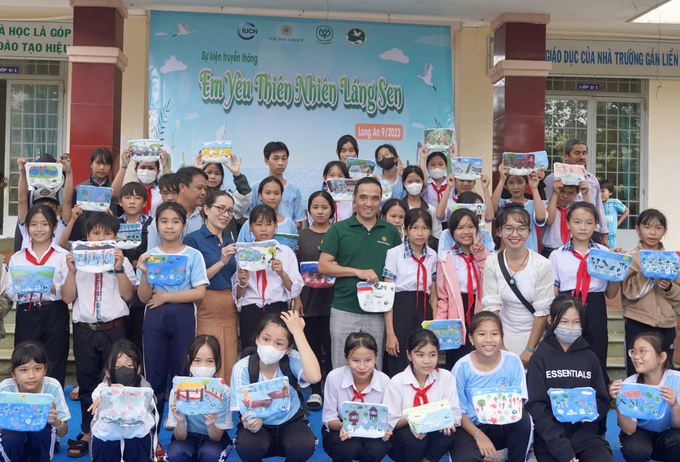
The painting competition on canvas with the theme "I Love the Nature of Lang Sen Wetland".
Over the course of the two-year implementation, in addition to planting 17 hectares of cajuput forest, the project also organized a series of awareness-raising activities aimed at promoting conservation among over 500 students from schools in the buffer zone. These initiatives were designed not only to engage and inspire the younger generation but also to help the local community gain a deeper understanding of the importance and value of wetland ecosystems. By fostering greater awareness of environmental protection, the project seeks to encourage collective action to safeguard the natural environment for future generations.
"For C.P. Vietnam, sustainable development is not simply a corporate commitment; it is a core value that underpins our operations. It is where the well-being of the country and its communities always comes first. We are continuously striving to build a sustainable economic ecosystem that works in harmony with society and the environment. With every step we take, we aim to contribute to a greener, more prosperous and sustainably developed Vietnam".
Translated by Phuong Linh

(VAN) Cold-barn systems efficiently manage environmental and temperature conditions, which aids in the prevention of respiratory diseases in pigs and protects them from the vectors that transmit African swine fevers.

(VAN) To tackle challenges, the project 'Addressing key technical bottlenecks in the grouper supply chain in Vietnam' has been underway since 2024.

(VAN) The project 'Disease-Resilient and Sustainable Cassava Production Systems in the Mekong Region', funded by the Australian Center for International Agricultural Research (ACIAR), is being implemented from 2024 to 2028.

(VAN) Data from 10,000 farming households will help professionalize production organization and support the implementation of the One Million Hectares Program for High-Quality, Low-Emission Rice Cultivation.

(VAN) FAO Director-General QU Dongyu marks International Day of Plant Health at NENA conference.

(VAN) Deputy Minister of Agriculture and Environment Hoang Trung affirmed that floriculture and ornamental plants are a growing industry that receives significant global attention.

(VAN) The three staple crops dominating modern diets – corn, rice and wheat – are familiar to Americans. However, fourth place is held by a dark horse: cassava.